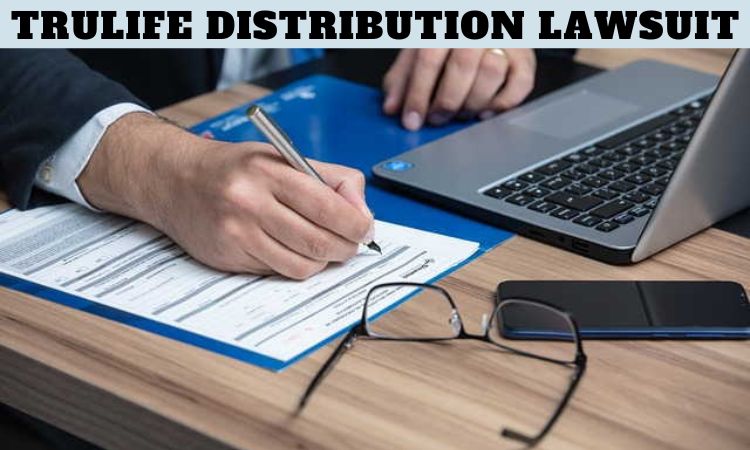
The TruLife Distribution lawsuit of 2022 was a complex legal battle fueled by allegations of deception, stolen intellectual property, and a dash of family drama. At the center of the dispute were two companies, NPI and TruLife Distribution, locked in a fight over business practices and client relationships.
The Players Involved
- NPI (National Promotions Inc.): Led by Mitch Gould, NPI is a company established in the promotional products industry.
- TruLife Distribution: Founded by Brian Gould, Mitch’s brother, TruLife Distribution is a competitor of NPI in the same industry.
The Allegations: A Web of Deception?
The core of the TruLife Distribution lawsuit revolved around claims made by NPI. They accused TruLife Distribution of engaging in several deceptive practices, including:
- Misappropriation of Case Studies: NPI alleged that Brian Gould, having previously held an executive position at NPI, had access to their confidential case studies. These case studies documented NPI’s past successes with clients. The lawsuit claimed TruLife Distribution then used these case studies, essentially NPI’s “success stories,” and presented them as their own to win over clients.
- False and Misleading Statements: NPI further contended that TruLife Distribution made false and misleading statements “with the intention to deceive NPI’s clients and prospective clients.” The specifics of these statements haven’t been publicly disclosed, but they likely related to TruLife Distribution’s capabilities and achievements.
- Deceptive Trade Practices: The lawsuit also pointed towards TruLife Distribution engaging in deceptive trade practices. This could have involved tactics like creating email addresses that mimicked those of NPI employees, potentially confusing clients and hindering communication.
Legal Framework: Invoking Multiple Laws
NPI’s lawsuit wasn’t based on a single legal principle. They reportedly cited several laws to support their claims, including:
- Florida’s Deceptive and Unfair Trade Practices Act: This law prohibits businesses from engaging in misleading or deceptive practices that could harm consumers. In this case, NPI argued that TruLife Distribution’s actions were unfair and deceptive to both clients and NPI itself.
- The Lanham Act: This federal law protects trademarks and prevents businesses from using confusingly similar branding or marketing tactics to mislead consumers. NPI might have argued TruLife Distribution’s practices infringed upon their brand reputation.
- The Anti-Cybersquatting Consumer Protection Act: If TruLife Distribution indeed created imitation email addresses, this law could have been relevant. It prohibits the creation of domain names or email addresses with the intent to mislead consumers into thinking they’re affiliated with another business.
Seeking Relief: Damages and Injunction
By filing the lawsuit, NPI aimed to achieve two key outcomes:
- Monetary Damages: NPI likely sought compensation for the financial losses they believed TruLife Distribution’s actions caused. This could have included lost business deals or damage to their reputation.
- Injunctive Relief: An injunction is a court order that restricts a party from continuing a particular activity. In this case, NPI might have sought an injunction to prevent TruLife Distribution from using NPI’s case studies, making misleading statements, or engaging in further deceptive trade practices.
A History of Conflict: Not the First Face-Off
The TruLife Distribution lawsuit wasn’t the first legal battle between the two companies. According to some reports, there had been a previous legal dispute between NPI and TruLife Distribution in 2019. The details of this earlier conflict are scarce, but some sources suggest NPI accused TruLife Distribution of “cloning” their operation. This could imply TruLife Distribution was imitating NPI’s business model in a way that NPI considered unlawful. While details are unclear, it seems the 2019 dispute was resolved through mediation in 2021. However, the TruLife Distribution lawsuit of 2022 indicated that tensions and unresolved issues persisted.
An Unexpected Turn: The Lawsuit Dismissed
The TruLife Distribution lawsuit took an interesting turn in June 2022. NPI, the initial plaintiff, voluntarily dismissed their complaint. The reasons behind this dismissal haven’t been publicly disclosed. There are several possibilities:
- Settlement: It’s possible that NPI and TruLife Distribution reached a private settlement agreement outside of court. This agreement could have involved TruLife Distribution admitting some wrongdoing, offering compensation to NPI, or agreeing to change their business practices.
- Strategic Decision: NPI might have concluded they could achieve their goals through other means, such as strengthening their own marketing efforts or focusing on new client acquisition strategies.
- Gathering More Evidence: Perhaps NPI needed more time to gather stronger evidence to support their claims. Dismissing the lawsuit could allow them to conduct further investigation before potentially refiling with a more robust case.
The Aftermath: Lingering Questions and Business as Usual?
The dismissal of the TruLife Distribution lawsuit left some unanswered questions. The public never learned the specifics of the settlement (if one existed) or the reasons behind NPI’s decision.
However, some key takeaways emerged from the legal battle:
- Reputational Damage: Even though the lawsuit was dismissed, the accusations against TruLife Distribution could have tarnished their reputation within the industry. Potential clients might be wary of a company accused of such practices.
- A Reminder of Ethical Conduct: The lawsuit served as a reminder for businesses in the promotional products industry, and beyond, to operate ethically and avoid deceptive practices.
- Family Feud Unresolved: While the legal battle ended, it’s unclear if it resolved the underlying tensions between the Gould brothers and their respective companies.
The TruLife Distribution Lawsuit: A Cautionary Tale
The TruLife Distribution lawsuit serves as a cautionary tale for businesses of all sizes. It highlights the importance of:
- Protecting Intellectual Property: Businesses should take steps to safeguard their confidential information, including case studies and client data.
- Ethical Marketing: Marketing efforts should be truthful and avoid any misleading tactics that could damage a company’s reputation.
- Resolving Disputes Amicably: While litigation can be necessary at times, exploring alternative dispute resolution methods like mediation can be more cost-effective and preserve relationships.
The TruLife Distribution lawsuit may be over, but its impact continues to be felt within the promotional products industry. It serves as a reminder of the importance of ethical business practices and the potential consequences of straying from them.


